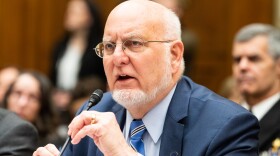
Sam Whitehead
Sam Whitehead is a reporter with GPB News.He has worked with “Here and Now,”NPR News, “State of the Re:Union,”WSKG News, andWRVO News. He also co-foundedWRFI Community Radio Newsin Ithaca, New York.He hasn’t won any awards yet.In his free time, he tries to become a better storyteller. He lives in Atlanta, Georgia.
-
Mental health courts connect people to treatment and keep them out of jail. But they also often come at the price of a guilty plea, and participants say that feels like coercion.
-
A significant number of new HIV infections happen among Black women, and a health education effort in Atlanta wants to make sure Black women can access the HIV-prevention medicines known as PrEP.
-
After a car accident, Frankie Cook went to the ER to make sure she didn't have a concussion. She walked out of the hospital in the clear. Then came the bill.
-
The coronavirus pandemic has taken a toll on law enforcement agencies. In Georgia, where vaccination rates are low and vaccine mandates are scarce, at least 33 officers have died of COVID-19 in 2021.
-
In Georgia, Michigan and Ohio, it's now been a few days of kids between the ages of 12 and 15 getting vaccinated. Each state has also had a different reaction to new CDC guidance on masks.
-
An NPR analysis of COVID-19 vaccination sites in major cities across the Southern U.S. reveals a racial disparity, with most sites located in whiter neighborhoods.
-
The two Democratic challengers for the U.S. Senate believe focusing on health care during a pandemic will motivate voters for the Jan. 5 runoff. If both win, their party will control the U.S. Senate.
-
Atlanta is the latest big city to require face coverings when people are in public. Mayor Keisha Lance Bottoms is moving forward with the plan despite resistance from Georgia's governor.
-
After weeks of keeping a low profile, the CDC's Dr. Robert Redfield tells NPR that data will determine future recommendations for wearing masks or easing back on social distancing.
-
People with sickle cell disease aren't fueling the opioid crisis, research shows. Yet some ER doctors still treat patients seeking relief for agonizing sickle cell crises as potential addicts.








